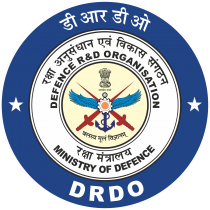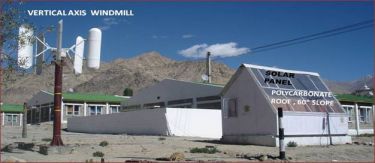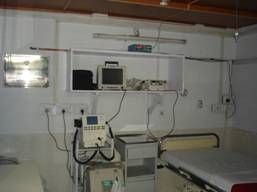
Categories
- Engines, Propulsion, Power Generation
- Infrastructure, Construction & Civil Engineering
- Services (R&D, training, engineering, consultancy, …)
- Textile, Individual Equipment, Clothing
Research in military physiology was started in 1952 with the formation of a small Physiology Division within the realm of Defence Science Laboratory (DSL) located in the premises of NPL at Pusa, New Delhi. Thereafter with recognition of environmental physiology and ergonomics of man-machine interface as prime thrust area, the Defence Institute of Physiology and Allied Sciences (DIPAS) was officially instituted on 20th September 1962 within DSL premises, which by then was shifted from NPL to Metcalfe House, Delhi. DIPAS, for a short period between Dec 1962 & 1968 was located in the Physiology Department of Madras Medical College, Madras. Subsequently, in 1968, it was relocated at the Army Base Hospital, Delhi Cantonment. In the year 1993, the Institute was shifted to its present permanent premises at Lucknow Road, Timarpur, Delhi. The Institute has consistently flourished with all kinds of new infrastructure for Physiological, Biochemical, Biomedical & Molecular (Proteomics & Genomics) research in relation to holistic health and performance improvement of soldiers.
During the early years, DIPAS has contributed extensively in all major areas of immediate application to defence operation, viz. ration scales and nutrition of soldiers, sizing of clothing, load carriage and distribution in infantry soldiers, thermal comfort zone identification, nature of heat casualty, salt and water requirement in summer, habitability survey of naval ships, physical training and conditioning schedule. While continuing with these issues related to immediate operational needs as faced by the users, research studies also emanated in tune with the time and the emerging technology. Extensive research work has been carried out on yoga and adaptogen as performance enhancers in extreme environments. Database on body composition, anthropometrics for formulation of recruitment standards, designing equipment and protective clothing for both male and females have been carried out. The studies on heat induced hypo-hydration on physiological and cognitive functions under desert operations were taken up for improving performance. Neurophysiological mechanism of anorexia, HAPE, cold injuries, memory impairment, sleep pattern at high altitude was elucidated for developing preventive/ therapeutic measures. Development of protective device against noise induced hearing loss by carbogen breathing was carried out successfully. The physiological evaluation of cold, heat and NBC protective clothing were done. The nutritional requirements of Armed Forces under different operational environments and during specialized training like high altitude were reviewed recently.
In line with the modern concepts of evaluation of any strategy and end result of research there are certain useful products and processes developed for improving the quality of life of man behind the machine. The research investigations and recommendations over the years has been termed as force multipliers for successful operations by armed forces. A three stage acclimatization schedule equipped the armed forces to battle the problems of acute mountain sickness & high altitude pulmonary edema and reduced the casualties to a large extent, treatment modality for high altitude pulmonary edema, yoga and herbal adaptogens of Indian origin, Aloe vera based cream for prevention of frost bite, carbogen for prevention of noise induced hearing loss are some of the achievements which have been accepted and implemented by the armed forces. In selection of soldiers and officers for armed forces, DIPAS has laid down standards based on body fat and body mass index after rigorous research and arrived at minimum physical standards . The same has been implemented by Indian Air Force for recruitment of pilots. DIPAS has also contributed immensely towards formulation of ration scales for armed services, designing of the cockpit of LCA or the drivers compartment of the main battle tank Arjun, physiological evaluation of life support systems for paratroopers and NBC suits.
DIPAS has developed battery operated electrically heated gloves and socks which are under evaluation. Also to make the living conditions of soldiers little comfortable a self sustaining hut utilizing non conventional energy sources is being developed, one such hut is under trial at base camp. In near future, DIPAS will revolutionize high altitude health and well being of the soldiers with electrically heated garments, field shelters using non conventional sources of energy for heating and power requirement, oxygen enrichment, creating genomics database, facilitating rapid acclimatization by different training protocols and providing herbal supplements for improving high altitude tolerance. DIPAS is also developing personal cooling suits for desert operations, strategies for improving soldiers health in LIC environment integrating yoga in health and disease of soldiers.
Defence Institute of Physiology & Allied Sciences (DIPAS)
- Chandrayangutta Lines, Hyderabad, India
- 2394 6257 / 23831053
- 011-23932869 / 23914790 / 23983149
- director@dipas.drdo.in
- www.drdo.gov.in/labs-and-establishments/defence-institute-physiology-allied-sciences-dipas




